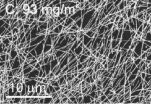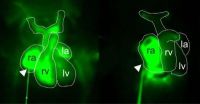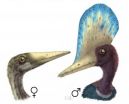(Press-News.org) A large study published in PLOS Medicine on January 29, 2013, shows that the risk of future cardiovascular disease and death increased with severity of erectile dysfunction in men both with and without a history of cardiovascular disease. While previous studies have shown an association between ED and CVD risk, this study finds that the severity of ED corresponds to the increased risk of CVD hospitalization and all-cause mortality.
The study authors, Emily Banks (from the Australian National University) and colleagues, analyzed data from the Australian prospective cohort 45 and Up Study. The authors examined the association between severity of self-reported ED and CVD hospitalization and mortality in 95,038 men aged 45 years and older, after adjusting for a number of potential confounding factors. The study included more than 65,000 men without known CVD at baseline and more than 29,000 men with known CVD. There were 7855 incident admissions for CVD during an average 2.2 years of follow-up ending in June 2010, and 2304 deaths during an average of 2.8 years of follow-up, ending in December 2010.
The authors found that, among men without known CVD, those with severe versus no ED had a relative 35% increase in risk of hospitalization for all CVDs, and a relative 93% increased risk of all-cause mortality. Among men with known CVD at baseline and severe ED, their increased risk of hospitalization for all CVDs combined was a relative 64% and for all-cause mortality, 137%.
The researchers say: "The findings of this study highlight the need to consider ED in relation to the risk of a wide range of CVDs". They also stress that it is unlikely that ED causes CVD; rather both are caused by similar underlying causes such as atherosclerosis. As a result, ED could serve as a useful marker to identify men who should undergo further testing to assess their risk for CVD.
###Funding: This specific project was supported by a development grant from the National Heart Foundation, NSW Cardiovascular Research Network, made available through the 45 and Up Study Cardiovascular Research Collaboration. EB is supported by the Australian National Health and Medical Research Council. The funders had no role in study design, data collection and analysis, decision to publish, or preparation of the manuscript.
Competing interests: JC has received research grants from Servier, administered through the University of Sydney and The George Institute, as principal investigator for the ADVANCE trial and ADVANCE-ON post trial follow-up study, and have received honoraria from Servier for speaking about ADVANCE at Scientific meetings. PM has received payment from Pfizer for giving a lecture on the treatment of pulmonary hypertension. All other authors have declared that no competing interests exist.
Citation: Banks E, Joshy G, Abhayaratna WP, Kritharides L, Macdonald PS, et al. (2013) Erectile Dysfunction Severity as a Risk Marker for Cardiovascular Disease Hospitalisation and All-Cause Mortality: A Prospective Cohort Study. PLoS Med 10(1): e1001372. doi:10.1371/journal.pmed.1001372
Contact:
Emily Banks
National Centre for Epidemiology and Population Health
Australian National University
Canberra, Australian Capital Territory, Australia
Emily.Banks@anu.edu.au
Jacqui Jones
Media Contact
Telephone: 02 9514 9248
Mobile: 0432 121 693
jacqui.jones@saxinstitute.org.au
Increasing severity of erectile dysfunction is a marker for increasing risk of cardiovascular disease and death
2013-01-29
ELSE PRESS RELEASES FROM THIS DATE:
New evidence highlights threat to Caribbean coral reef growth
2013-01-29
Coral reefs build their structures by both producing and accumulating calcium carbonate, and this is essential for the maintenance and continued vertical growth capacity of reefs. An international research team has discovered that the amount of new carbonate being added by Caribbean coral reefs is now significantly below rates measured over recent geological timescales, and in some habitats is as much as 70% lower.
Coral reefs form some of the planet's most biologically diverse ecosystems, and provide valuable services to humans and wildlife. However, their ability to ...
Could the timing of when you eat, be just as important as what you eat?
2013-01-29
Boston, MA—Most weight-loss plans center around a balance between caloric intake and energy expenditure. However, new research has shed light on a new factor that is necessary to shed pounds: timing. Researchers from Brigham and Women's Hospital (BWH), in collaboration with the University of Murcia and Tufts University, have found that it's not simply what you eat, but also when you eat, that may help with weight-loss regulation.
The study will be published on January 29, 2013 in the International Journal of Obesity.
"This is the first large-scale prospective study ...
Debunking the 'July effect': Surgery date has little impact on outcome, Mayo Clinic finds
2013-01-29
ROCHESTER, Minn. -- The "July Effect" -- the notion that the influx of new residents and fellows at teaching hospitals each July makes that the worse time of year to be a patient -- seems to be a myth, according to new Mayo Clinic research that examined nearly 1 million hospitalizations for patients undergoing spine surgery from 2001 to 2008. Among those going under the knife, researchers discovered that the month surgery occurred had an insignificant impact on patient outcomes.
In addition, no substantial "July Effect" was observed in higher-risk patients, those admitted ...
Physicians' brain scans indicate doctors can feel their patients' pain -- and their relief
2013-01-29
BOSTON – A patient's relationship with his or her doctor has long been considered an important component of healing. Now, in a novel investigation in which physicians underwent brain scans while they believed they were actually treating patients, researchers have provided the first scientific evidence indicating that doctors truly can feel their patients' pain – and can also experience their relief following treatment.
Led by researchers at Massachusetts General Hospital (MGH) and the Program in Placebo Studies and Therapeutic Encounter (PiPS) at Beth Israel Deaconess ...
Preclinical study identifies 'master' proto-oncogene that regulates ovarian cancer metastasis
2013-01-29
Scientists at The University of Texas MD Anderson Cancer Center have discovered the signaling pathway whereby a master regulator of cancer cell proteins – known as Src – leads to ovarian cancer progression when exposed to stress hormones. The researchers report in the current issue of Nature Communications that beta blocker drugs mitigate this effect and reduce cancer deaths by an average of 17 percent.
Src (pronounced "sarc," short for sarcoma) is a proto-oncogene – a normal gene that can become an oncogene due to increased expression – involved in the regulation of ...
Medical societies unite on patient-centered measures for nonsurgical stroke interventions
2013-01-29
FAIRFAX, Va.—The first outcome-based guidelines for interventional treatment of acute ischemic stroke—providing recommendations for rapid treatment—will benefit individuals suffering from brain attacks, often caused by artery-blocking blood clots. Representatives from the Society of Interventional Radiology and seven other medical societies created a multispecialty and international consensus on the metrics and benchmarks for processes of care and technical and clinical outcomes for stroke patients.
In February, the guidelines will be published first in SIR's Journal ...
New options for transparent contact electrodes
2013-01-29
This press release is available in German.
Found in flat screens, solar modules, or in new organic light-emitting diode (LED) displays, transparent electrodes have become ubiquitous. Typically, they consist of metal oxides like In2O3, SnO2, ZnO and TiO2.
But since raw materials like indium are becoming more and more costly, researchers have begun to look elsewhere for alternatives. A new review article by HZB scientist Dr. Klaus Ellmer, published in the renowned scientific journal Nature Photonics, is hoping to shed light on the different advantages and disadvantages ...
Epigenetic control of cardiogenesis
2013-01-29
This press release is available in German.
Many different tissues and organs form from pluripotent stem cells during embryonic development. To date it had been known that these processes are controlled by transcription factors for specific tissues. Scientists from the Max Planck Institute for Molecular Genetics in Berlin, in collaboration with colleagues at MIT and the Broad Institute in Boston, have now been able to demonstrate that RNA molecules, which do not act as templates for protein synthesis, participate in these processes as well. The scientists knocked down ...
New insights into conquering influenza
2013-01-29
As influenza spreads through the northern hemisphere winter, Dr Linda Wakim and her colleagues in the Laboratory of Professor Jose Villadangos from the Department of Biochemistry and Molecular Biology, and the Department of Microbiology and Immunology, believe they have a new clue to why some people fight infections better than others.
The lab has been investigating the 'defensive devices' contained within the T- cells that are located on exposed body surfaces such as skin and mucosal surfaces to ward off infection. T-cells detect cells infected with viruses and kill ...
Survival of the prettiest: Sexual selection can be inferred from the fossil record
2013-01-29
Detecting sexual selection in the fossil record is not impossible, according to scientists writing in Trends in Ecology and Evolution this month, co-authored by Dr Darren Naish of the University of Southampton.
The term "sexual selection" refers to the evolutionary pressures that relate to a species' ability to repel rivals, meet mates and pass on genes. We can observe these processes happening in living animals but how do palaeontologists know that sexual selection operated in fossil ones?
Historically, palaeontologists have thought it challenging, even impossible, ...


